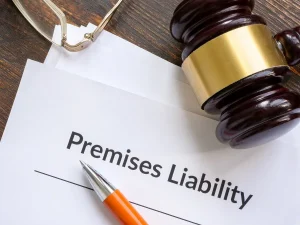Landlord Ethics in Commercial Real Estate: Are Compassion Clauses the Future?
In the high-stakes world of commercial real estate leasing, landlords hold a powerful position. With contracts worth millions, it's no surprise that lease agreements are built to protect property owners. But in recent years, questions have emerged: When tragedy strikes, should landlords show compassion? Is being legal always being ethical?
These aren’t just hypothetical debates. They're becoming real-world challenges in cities like New York, Los Angeles, and San Francisco, where commercial rent is high—and human stories often go unheard.
Legal Contracts vs. Moral Obligations
Most commercial lease agreements are non-negotiable once signed. Tenants are obligated to pay rent regardless of circumstances, even if they suffer:
-
Personal loss
-
Serious illness
-
Business failure
-
Unexpected death
In many cases, even when tenants lose everything, landlords are not required to refund deposits or adjust payment terms. While this might be standard business practice, critics argue that ethical real estate practices should go further.
A Real-World Example: The Olivon Case
In February 2025, French chef François-Tanguy Olivon tragically died after investing over $210,000 with his wife to open a restaurant in SoHo, New York. The couple had signed a 10-year lease for their dream business.
After his sudden death, his widow Manon Olivon pleaded with their landlord for even a partial refund. Instead, she was told she would be held responsible for the entire lease—$3 million—unless she signed a surrender agreement.
“I don’t have a house, I don’t have a car, I don’t have anything,” she told the press. “Just two children and a broken dream.”
The landlord’s actions were legally justified, but the public viewed them as morally cold. The story gained international attention, reigniting debate over the ethics of commercial leasing.
The Tenant-Landlord Power Gap
Unlike residential renters, small business tenants often lack legal protections. The balance of power typically leans toward landlords, especially in:
-
Long-term commercial leases
-
Triple net (NNN) lease agreements
-
High-demand neighborhoods like SoHo, Venice, or Midtown Manhattan
Startups, immigrant families, and independent restaurants are especially vulnerable. Many sign multi-year leases and pay large deposits without legal teams or a safety net.
These stories raise the need for ethical standards that go beyond what’s enforceable.
What Are Compassion Clauses in Leases?
One emerging solution is the “compassion clause” — a contractual addendum that allows tenants and landlords to renegotiate terms under extraordinary life circumstances.
This could include:
-
Death of a business partner
-
Terminal illness
-
Natural disasters
-
Public emergencies (like COVID-19)
Incorporating ethical lease clauses not only protects tenants but also fosters goodwill and long-term brand reputation for landlords.
Why Ethical Landlords Have the Advantage
In an era of social media and online reviews, a landlord’s reputation is public. Viral stories of unsympathetic commercial landlords can damage brand equity, while stories of landlords who show empathy often result in positive press and tenant loyalty.
Real estate attorneys and commercial brokers say there’s a growing shift in urban centers:
-
More landlords are open to flexible leasing solutions
-
Ethical property management is becoming a differentiator in competitive real estate markets
-
Public perception influences investment and occupancy rates
A Turning Point in Commercial Leasing Culture
As cities bounce back post-pandemic, the commercial rental landscape is evolving. Startups, artists, restaurateurs, and entrepreneurs are seeking not just square footage — but fair and flexible lease terms.
The commercial real estate industry now faces a choice: enforce contracts to the letter, or lead with empathy and build a new standard for ethical leasing.
Closing SEO phrase: “Compassion in commercial lease agreements may not be required by law, but in 2025 and beyond, it could become the new gold standard in ethical real estate practices.”
Frequently Asked Questions (SEO Booster)
What is a compassion clause in commercial real estate?
A compassion clause allows lease renegotiation in case of tragedy or hardship, offering flexibility without legal penalties.
Are landlords legally required to refund commercial deposits?
Not usually. Most commercial leases do not require landlords to return deposits unless stated in the agreement.
Can ethical leasing improve a landlord’s reputation?
Yes. Ethical behavior, especially in crisis situations, can lead to positive media attention and increased tenant trust.





















